When you're at the grocery store, do you ever feel confused or overwhelmed by all of the prepackaged “health” foods? Wondering how to sort the many nutrition facts and myths apart?
Understanding nutrition information can be challenging. Sometimes, foods that claim to be healthy are actually packed full of empty calories. That granola you're reaching for? It could actually be packed full of sugars and processed carbohydrates.
This is especially true if you're trying to lose weight. Trimming your waistline is more than just hitting the gym on a daily basis; you also need to balance out your calorie intake and fill your body with healthy, whole foods.
To make your life easier, we examined some of the most common nutritional myths, how nutrition affects your weight, and how you can avoid empty calories with a healthy diet.

Common Nutritional Myths
Does it seem like eating healthy is more of a fad lately? There are entire stores dedicated to selling healthier alternatives.
But there are many nutritional myths out there.
One of the most common nutritional myths is that low-fat diets are the healthiest option to help you lose weight. While it is true that you should avoid consuming processed fats and trans fats, eliminating all fat from your diet will not necessarily speed up weight loss. Low-fat diets often advocate replacing fatty foods with carbohydrate-dense foods.
Many studies show that this diet is not only ineffective at promoting weight loss, it also doesn't improve heart health or reduce the risk of heart disease.
Another common nutritional myth is that sodium intake directly affects the risk of:
- High blood pressure
- Stroke
- Heart attacks
- Blocked arteries
Sure, lowering your sodium intake can lower your blood pressure. But there is no scientific evidence to suggest that a low-sodium diet can decrease your risk of heart attacks or stroke.
But don't be fooled. Excess sodium does affect your blood pressure. This is especially true if you struggle with salt-sensitive hypertension. Following the recommended sodium intake is part of a healthy diet. You don't need to cut all salt from your diet to lead a healthy lifestyle.
Have you ever heard that carbs are bad for your health?
Diets of the 80s made fat the enemy. But today's health advice? Ditch your carbs.
Many people who are trying to lose weight try to cut all carbohydrates from their diets. The news and popular opinion suggest that eating carbs is a surefire way to ruin your diet. However, there is very little scientific evidence to back up this suggestion.
Complex carbohydrates can help you in your weight loss journey. Try opting for whole grains and complex carbohydrates such as:
- Oatmeal
- Yams
- Sweet potatoes
- Brown rice
- Whole wheat bread
These types of carbohydrates can help you feel fuller for longer and boost your energy throughout the day.
However, watch out for foods high in processed carbs. These little monsters don't take much energy to digest. The body quickly digests processed carbs and turns them into sugars. These sugars can get stored in your fat cells and quickly derail your weight loss.
You might have also heard that you should shy away from three solid meals per day. Instead, many people advocate for smaller, more frequent meals spread throughout the day.
But this isn't necessarily true.
Some people struggle to feel full when they eat smaller portioned meals. This can lead to unintentional overeating and an increase in calorie consumption. Scientists generally agree that it's not about how often you eat or how big your portions are. At the end of the day, the key to weight loss is to consume fewer calories than your burn.
Do you eat breakfast every day?
Maybe you've always heard that “breakfast is the most important meal of the day”. Some people swear that a good breakfast is essential for weight loss.
The truth is that you don't have to eat breakfast every day to maintain a healthy, balanced diet. In fact, if you're not hungry in the morning, it's perfectly fine to skip breakfast.
If you're only skipping breakfast because you don't have time, you may end up feeling hungry before lunchtime rolls around. In this case, it can be difficult to resist the temptation to snack before lunch. The key here is to listen to your body. If you're actually hungry in the morning, go for healthy breakfast options like oatmeal, whole grain toast, or a banana. These kinds of breakfasts can fill you up and fight off hunger until lunchtime.
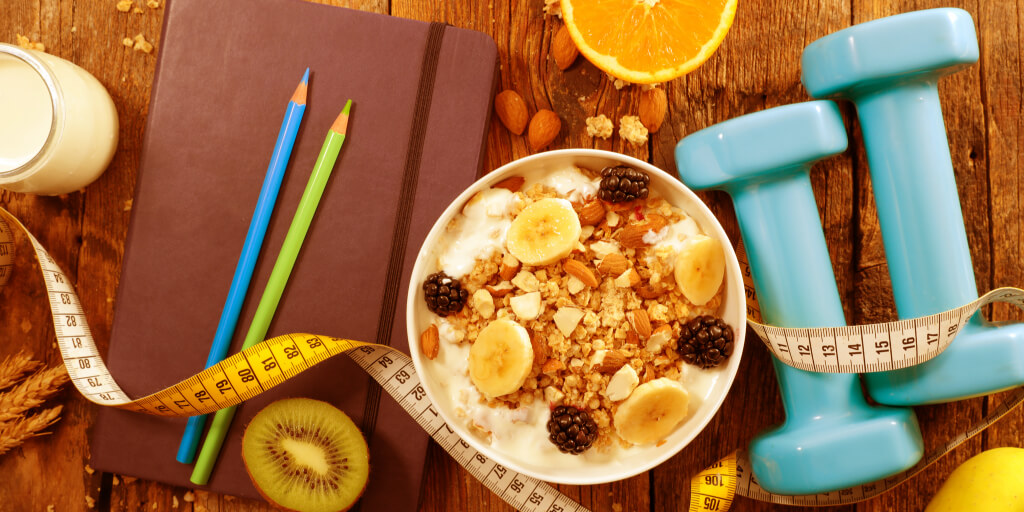
How Does Nutrition Affect Weight Loss?
Now that you're on your way to a healthier lifestyle, you may be wondering what role nutrition plays in losing weight.
Don't worry because you're not alone. Sometimes the correlation between nutrition and weight loss can be confusing.
Losing weight isn't simply about hitting the gym every day. In fact, even if you're working out 5 – 7 days a week, you may not be seeing the weight loss you want.
This is especially true if you aren't eating mindfully.
Successful weight loss comes from two factors.
It is made up of 25% exercise and physical activity.
The rest comes from your diet. It won't matter how hard you're hitting the gym if you continue to fill your body with processed, unhealthy foods.
Good nutrition plays an essential role in weight loss. Consuming more calories than you burn will only lead to one thing: weight gain. You can't exercise your way out from a bad diet.
Getting the right foods in the right portions doesn't just promote a healthy weight, it also fuels your body. Your body needs energy and nutrients to rebuild muscle and fortify your bones for your workouts.
Be careful which diets you decide to follow. Many of them restrict foods (such as complex carbohydrates) that your body may need to sustain a healthy metabolism. When in doubt, listen to your body. If you're not getting the proper nutrients and fuel, you may feel sluggish, weak, or suffer from extended recovery times.
Nourishing your body with good nutrition is necessary to lose weight. Starving yourself with huge caloric deficits can actually slow or stop your weight loss and damage your metabolism.
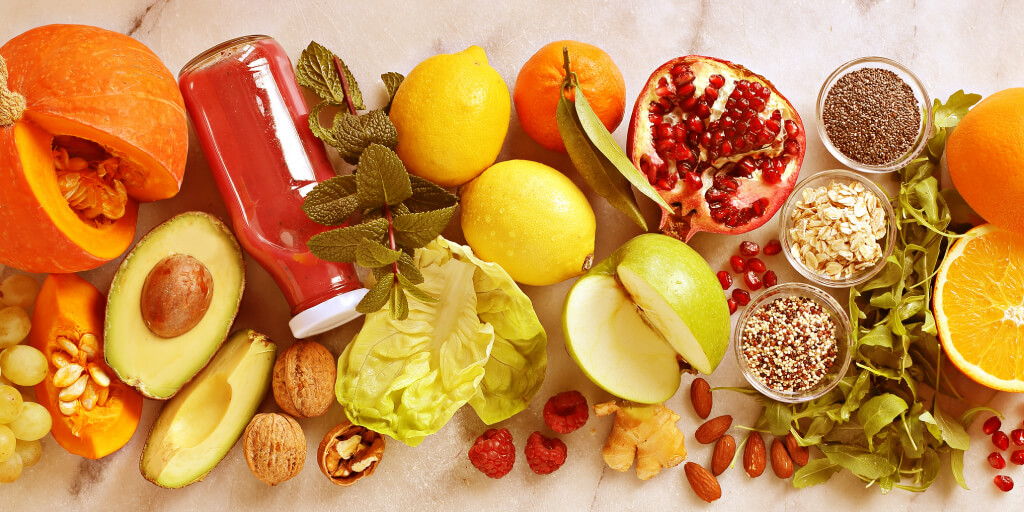
Foods that Help Burn Belly Fat
If you're like most people, you may find that the weight around your stomach area is one of the hardest to lose.
Losing belly fat isn't always easy and there's no miracle solution.
However, studies show that some foods may help target weight loss in the midsection. Many of these foods are common foods and may already be a part of your daily diet.
Believe it or not, avocados may help you achieve that slim waistline of your dreams. While avocados may be higher in fat content than other foods, that's no reason to avoid them.
In fact, the monounsaturated fats naturally found in avocados can help reduce bloating. While this doesn't mean that you lost weight, it can help fight bloat that is often mistaken for weight gain.
These powerful monounsaturated fats also regulate blood sugar spikes. When blood sugar spikes, the body is triggered to store fat in the tummy area. These healthy fats can help prevent your body from storing excess weight around the midsection.
Yogurt is also a food that can help combat belly fat. When you opt for yogurt, you help increase the number of good bacteria in your gut. This increase in healthy bacteria can help prevent bloating and promote healthy and efficient digestion.
Yogurt also helps to stabilize your insulin levels. Keeping insulin levels stable isn't just important for people who struggle with diabetes.
Insulin levels also regulate hormones that tell your body when to convert calories to fat. If insulin levels creep too high, the body begins to store calories as fat. Eating yogurt can help regulate those hormones and prevent the storage of fat cells around the midsection.
Maybe most surprisingly, whole grains can help target belly fat. While many diets suggest that you avoid carbohydrates, whole grains can help you on your weight loss journey.
Healthy, whole grains, such as oatmeal and brown rice, help to regulate the body's insulin levels. While processed, sugar-filled carbohydrates can spike your insulin levels, whole grains keeps insulin low. Not only can they help shrink fat cells, but whole grains are also digested slowly. This can give the body a long-lasting boost of energy throughout the day.
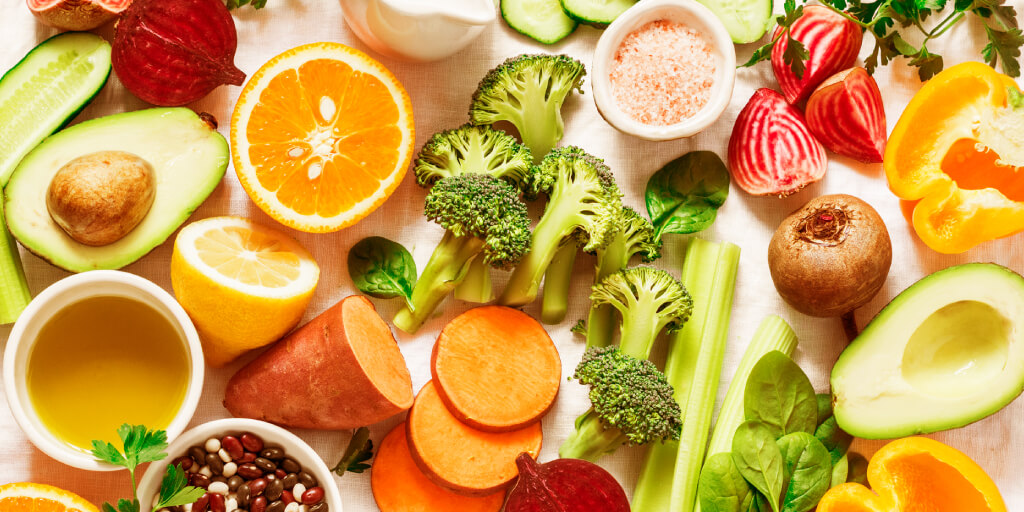
What is the Healthiest Diet to Lose Weight?
Unfortunately, there's not really a single solution for everyone when it comes to losing weight. It can be difficult to choose a diet when the internet is filled with loads of information on fad diets.
Low carb? Keto? Low fat?
Which diet is the best?
Studies suggest that one of the healthiest and most effective diets for losing weight is the Mediterranean style diet.
This diet doesn't necessarily regulate what you can't eat. Rather, it focused on what you can eat.
Try incorporating multiple servings of fruit and veggies each day. You don't need to restrict your carbohydrate intake. Instead, opt for whole-grain breads, pastas and cereals.
The Mediterranean diet is also rich in healthy fats. You can get your daily dose of healthy fats from nuts and seeds. Or, try switching out salad dressings for olive-oil based alternatives.
You can also indulge in lean proteins. These are often found in foods like:
- Poultry
- Fish
- Beans
In general, the Mediterranean diet suggests that you limit your red meat intake.
But maybe the best news is that the Mediterranean diet includes moderate consumption of wine at meals! Men should stick to two glasses of wine per day. For women, it's better to stick to one glass per day.
Following this healthy and nutritious Mediterranean diet can help boost your weight loss progress.
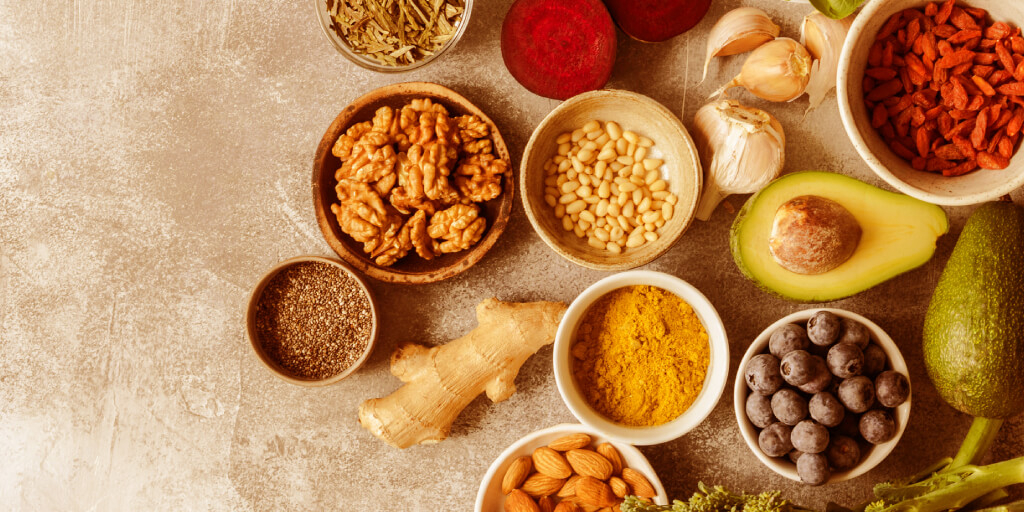
How to Avoid Empty Calories
If you've ever caved to the mid-afternoon munchies, you probably succumbed to the temptation of empty calories.
It can be difficult to resist the urge to eat foods packed with empty calories. That soda, bag of chips, or candy bar may be too good to give up.
Despite the challenge, there are ways to avoid empty calories.
The key is to find healthy, convenient alternatives that can be swapped out for junk foods.
For example, if you find yourself craving sugary junk food, try swapping it out for fruits. Fruits are naturally sweetened and they provide fiber and other valuable nutrients for your body.
If you are tempted to chow through a bag of chips, opt for roasted nuts or seeds instead. While unsalted is best for you, there are many trail mix options that can satisfy your cravings for salty snacks.
For breakfast, try topping your toast with peanut butter or smashed avocado.
These alternatives provide more filling and nutrient-dense options. This will help your body feel full for longer. They can also help kick your cravings for junk foods.
It's easy to see how nutrition plays a key role in your health. Exercise alone won't get you the results that you're looking for. Fill your diet full of whole foods and kick those processed, empty calories to the curb!
Sources:
https://examine.com/nutrition/awful-nutrition-myths/#summary2
https://www.healthline.com/nutrition/20-mainstream-nutrition-myths-debunked#section3
https://www.health.harvard.edu/topics/diet-and-weight-loss
https://www.huffpost.com/entry/exercise-vs-diet-for-weight-loss_n_5207271
https://health.usnews.com/best-diet/best-weight-loss-diets

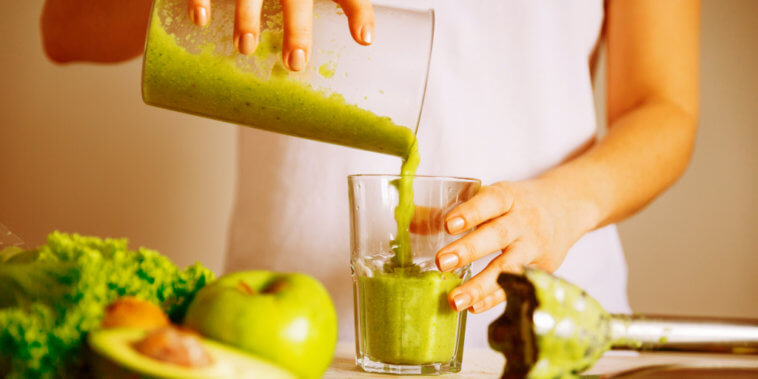

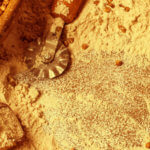
Comments
Loading…